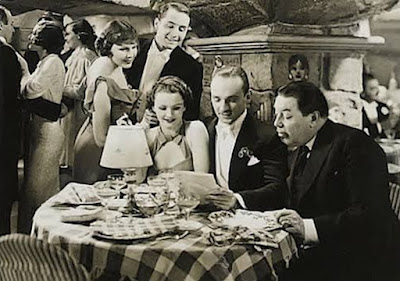Longlisted for the Carnegie Medal for Excellence in Nonfiction
This is part of my Participation in Paris in July 2023 - Hosted by Words and Peace
https://wordsandpeace.com/2023/06/30/paris-in-july-2023/#list
Paper Bullets is the first book to tell the history of an audacious anti-Nazi campaign undertaken by an unlikely pair: two French women, Lucy Schwob and Suzanne Malherbe, who drew on their skills as Parisian avant-garde artists to write and distribute “paper bullets”—wicked insults against Hitler, calls to rebel, and subversive fictional dialogues designed to demoralize Nazi troops occupying their adopted home on the British Channel Island of Jersey. Devising their own PSYOPS campaign, they slipped their notes into soldier’s pockets or tucked them inside newsstand magazines.
Hunted by the secret field police, Lucy and Suzanne were finally betrayed in 1944, when the Germans imprisoned them, and tried them in a court martial, sentencing them to death for their actions. Ultimately they survived, but even in jail, they continued to fight the Nazis by reaching out to other prisoners and spreading a message of hope.
Better remembered today by their artist names, Claude Cahun and Marcel Moore, the couple’s actions were even more courageous because of who they were: lesbian partners known for cross-dressing and creating the kind of gender-bending work that the Nazis would come to call “degenerate art.” In addition, Lucy was half Jewish, and they had communist affiliations in Paris, where they attended political rallies with Surrealists and socialized with artists like Gertrude Stein." From the publisher
The bulk of the action takes place on the British Channel island Jersey though the values that motivated the two women were derived from their artistic contacts in Paris prior to moving to Jersey. Both women came from wealthy Paris families and never had any financial worries. They met when quite young and would become lovers. They used pseudonyms and pretended to be step- sisters. They moved to Jersey a few years before the Germans invaded. Jersey was a popular vacation destination for Parisians. The women like the peace of the island a bought a huge house there.
When the Nazis took over Jersey the women begin to distribute a wide variety of "paper bullets" designed to make German soldiers turn against the war. They created a character called "the unknown soldier" whose message was that Hitler cares nothing about them.
Some Jersey residents engaged in passive resistance, others cooperate with the Germans, most just try to get by as conditions get worse as the Germans begin to see defeat is inevitable.
The period of the women's imprisonment is harrowing to read, some German guards tried to be decent, others hated the women.
The Nazis were not as against Lesbian couples as gay men and few locals understood their relationship.
Paper Bullets is an important contribution to the literature of the occupation of Jersey, French resistance, LGBTQ studies and World War Two history.
Jeffrey H. Jackson is professor of history at Rhodes College in Memphis, Tennessee. An expert on European history and culture, he is the author of Paris Under Water: How the City of Light Survived the Great Flood of 1910 and Making Jazz French: Music and Modern Life in Interwar Paris. He has appeared in documentary films and helped develop "Harlem in Montmartre: A Paris Jazz Story" for PBS's Great Performances.
Mel ulm














